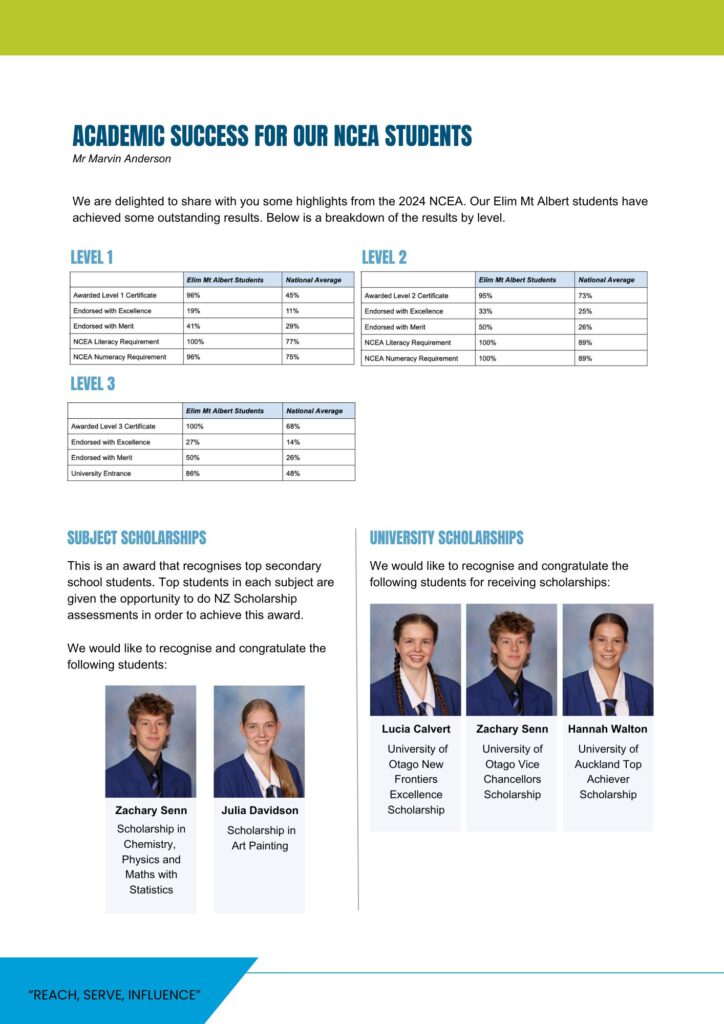NCEA (National Certificate of Education Achievement) is the national qualification for senior secondary school students in New Zealand. Individual subjects are divided into standards, some of which are assessed internally and some externally (maximum 3) through NZQA national examinations. Each standard clearly identifies what a student must do in order to achieve that standard and generates credits that contribute to a certificate at Level 1, 2 or 3 on the New Zealand Qualifications Framework. At each level, students are able to achieve their qualifications with Merit or Excellence endorsements. For a certificate to be endorsed with Merit or Excellence, 50 credits at Merit or Excellence are required at that level or higher. A subject may also be endorsed with Merit or Excellence if 14 or more credits are gained at Merit or Excellence. At least three credits must be from externally assessed standards and three credits from internally assessed standards in that course.
Level 1
All students are required to take five subjects including English, mathematics and science. Students need to achieve 80 credits to gain an NCEA Level 1. Of these 80 credits, 10 credits must meet the literacy requirements and 10 credits must meet the numeracy requirements.
Level 2
Students study five subjects including English and mathematics. The subject choice should be based on the previous study in Level 1, interests, strengths and future direction. Please pay close attention to the prerequisites for chosen subjects. To complete NCEA Level 2, students need 80 credits of which 60 need to be at Level 2 or above. The other 20 credits can be from any level, including Level 1.
Level 3
Students study five subjects at Level 3. They should be choosing their subjects for Level 3 based on their previous study in Level 2, interests, strengths and future direction. To complete NCEA Level 3, students need 80 credits of which 60 need to be at Level 3 or above. The other 20 credits need to be from Level 2 or above.
Multi Levelling
Level 1, 2 and 3 NCEA should be viewed as a “menu” of programmes available to all students regardless of their age or year group. It may be possible for students to enrol in programmes based on prior knowledge. For example, particularly able Year 10 students could attempt some Level 1 subjects. In the same way Year 13 students may wish to enrol for some Level 1 or 2 courses out of interest or to “catch up”.
Scholarship
Students who have achieved a significant number of excellence results in any Level 2 subject should consider entering scholarship in that subject. Scholarship is a monetary award to recognise top students. It will not attract credits nor contribute towards a qualification but the fact that a student has gained a scholarship will appear on their Record of Achievement.


